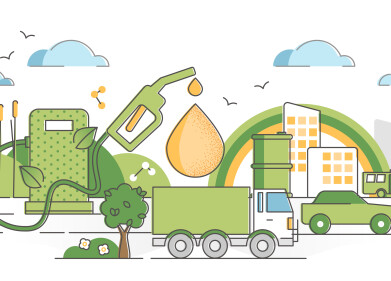-
 Mutant A thaliana plants could lead to new avenues of biofuel testing
Mutant A thaliana plants could lead to new avenues of biofuel testing
Biofuel industry news
Biofuel testing could lead to water-efficient crop growth
Jan 13 2011
Arabidopsis thaliana is a small, flowering plant that is popular as a genetic model for other, more complex organisms.
As such, any findings made in the species could highlight potential routes for future biofuel testing in feedstock crops.
Scientists at Purdue University have discovered one potentially useful mutation in the species: its ability to grow with a reduced number of stomata.
These are the holes through which water is released and carbon dioxide taken in, and usually close during periods of drought, subduing the growth of the plant but retaining water.
In mutants with fewer stomata, however, 20 per cent less water is lost, while the same amount of carbon dioxide is taken up.
Together with sunlight, these are the key ingredients for photosynthesis - and, in the mutant plants, lead to the same biomass production as in wild examples, but with less water required.
Digital Edition
PIN 25.6 Buyers' Guide
January 2025
Buyers' Guide Directory - Product Listings by Category - Suppliers Listings (A-Z) Articles Analytical Instrumentation - ASTM D7042: The Quantum Leap in Viscosity Testing Technology -...
View all digital editions
Events
Jan 20 2025 San Diego, CA, USA
Jan 22 2025 Tokyo, Japan
Jan 25 2025 San Diego, CA, USA
SPE Hydraulic Fracturing Technology Conference and Exhibition
Feb 04 2025 The Woodlands, TX, USA
Feb 05 2025 Guangzhou, China


















